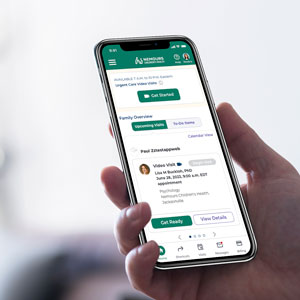Pendred Syndrome and DFNB4
Gene: SLC26A4
Protein: pendrin
Clinical Characteristics
Pendred Syndrome
- Sensorineural hearing loss:
- Usually bilateral
- Usually severe to profound
- Onset typically at birth or in early childhood
- Temporal bone abnormalities:
- Enlarged vestibular aqueduct
- Cochlear hypoplasia may or may not be present
- Significant variability within and between families:
- Enlarged vestibular aqueduct is typical
- Cochlear hypoplasia may or may not be present
- Euthyroid goiter, onset in early adulthood
DFNB4
- Nonsyndromic sensorineural hearing loss
- Temporal bone abnormalities
Absence of thyroid defects
Inheritance pattern: Autosomal recessive
What Can Be Learned From This Test
Molecular testing of the SLC26A4 gene should be considered for individuals with hearing loss and enlarged vestibular aqueduct (EVA). Testing is performed by sequencing all exons and the surrounding intronic regions of the SLC26A4 gene. This assay will detect point mutations, small deletions and small insertions. It will not detect a partial or whole gene deletion or duplication.
SLC26A4 mutations are identified in 80%-90% of familial cases of Pendred syndrome, and in about 30% of cases with no family history. Mutations have been identified throughout the SLC26A4 gene and include point mutations, small insertions or deletions, and splice site mutations. Deletions of single and multiple exons have also been reported.
The detection of two pathogenic mutations in SLC26A4 is consistent with a diagnosis of Pendred syndrome or DFNB4. However, single heterozygous mutations have been identified in SLC26A4 in 20-30% of individuals who meet criteria for Pendred syndrome or DFNB4. It is hypothesized that a second unidentified mutation is present in SLC26A4 or in another gene. There is some evidence to suggest that individuals with one identified mutation in SLC26A4 are less likely to develop thyroid manifestations than individuals with two identified mutations.
Sample Requirements
Draw 2ml–4ml of blood in EDTA/purple-top tube (minimum of 1ml–2ml for infants).
Turnaround time: 10-14 business days
CPT Codes and Cost
Full Gene Sequencing
- Code: 81406
- Cost: $1,550
Known Variant Testing
- Code: 81479
- Cost: $225

